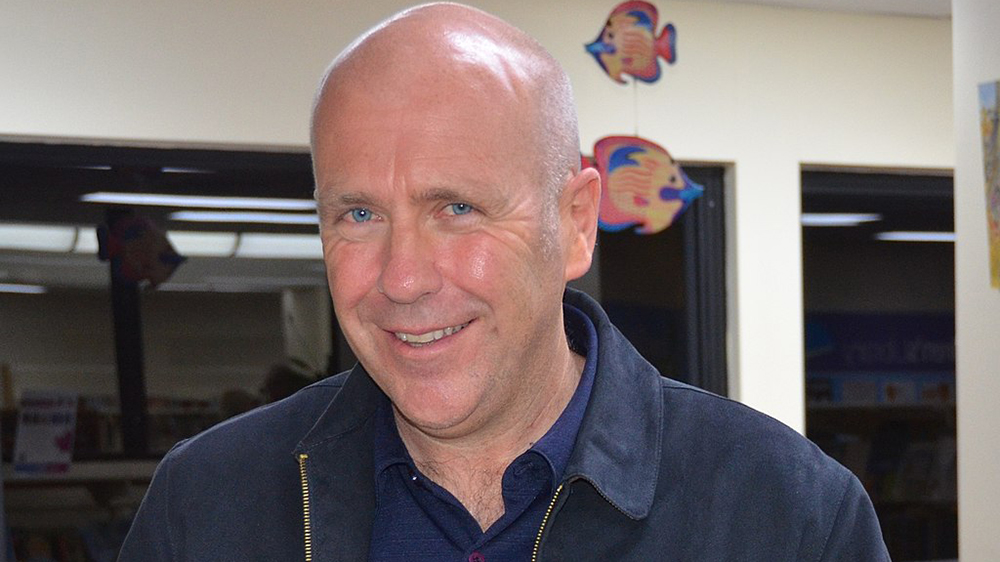Imagine if your ring finger, middle finger or third toe just … went missing. You looked. You waved your limbs in front of your face. You sniffed, even licked the spot where the digit used to be. But then, too afraid to think about it (let alone talk about it) you just carried on with your day? Reports, meetings, pilates, bills.
What if your mother lay in a hospital ward dying of complication upon complication from brain and kidney failure but, fearful of facing reality, you hid in the hospital toilets and doom-scrolled Instagram?
What if Tasmania first, then mainland Australia, started burning, resulting in millions – no billions of animal deaths. But, overwhelmed, you pen a post about your new shoes! Meanwhile at that exact moment ‘oceans were warming at a rate of five atom bombs per second’. Wouldn’t it seem like madness?
The Living Sea of Waking Dreams is Tasmanian author Richard Flanagan’s cry of frustration at the state of our world. It’s a lament for our environment suffering biodiversity loss, heated atmospheres and burning landscapes. But it’s also a requiem for the things that hold families and communities together. It’s a book about how we fill up our lives to the brim, pushing serious problems out of sight. But what if pushing some things out of the way made other things vanish; a finger, then knee, an entire hand. This is what happens to Anna.
Her life was to go on as it ever had. Parts of her would go missing and no one, not even doctors, would ever notice. And if no one noticed did anyone care? And if no one cared why should she?
Throughout it all, her mother Francie lies slowly dying in Royal Hobart Hospital. Ready to face death she sees visions of a beautiful world; a place of fantasy and awe. But her children, unwilling to be drawn into the mess her death would bring them, continue to prop her up with ‘aggressive intervention’, determined things will return to how they were. Six daily pills becomes 17, becomes 21.
If ever there was a book to get us to look up from our phones, this is it! But has it? Will it?
As I write, world leaders are meeting in Glasgow for the UN Climate Change Conference (COP26). The goal is to unite the world in tackling the problem of our entire globe. Speaking for the host nation, UK leader Boris Johnson opened the conference with the most serious wake-up call he could muster. ‘We’re roughly in the same position as James Bond,’ he said. One minute to midnight, ‘strapped to a doomsday device’ heading for ‘a detonation that will end human life as we know it’. Will we overlook his cheesy reference to listen? Will governments, companies, voters, citizens hear and most importantly, change?
Using brutal realism and absurd fantasy, Richard Flannagan also asks if we will face the truth.
Using brutal realism and absurd fantasy, Richard Flannagan also asks if we will face the truth. Will we look at what is ‘going, going, gone!’? Or will be like someone whose own left breast goes missing and all she can say is ‘F*@# it!’
But now it had vanished, she realised she missed it. But like the aurochs, it was gone. Like the thylacine and the Walkman. Like long sentences. Like smoke-free summers. Gone, never to return.
I find it so hard to do that: to pay attention and to act – and not just in response to my environment – in many areas of life. I’m used to living in broken situations with old injuries, scrambling to cover. And so many things are broken. How do I turn and face the truth? What exactly do I start doing? It’s hard to change. And so, like the characters in the book, I just keep going.
Through the book, Flanagan offers breadcrumbs of hope; love, connection to place, family, deep history, engaging the truth.
She wished to once more observe the world not as people said it was, but as it is. She wanted to be attentive to what this is, not panicked by what wasn’t. She needed to precisely know the world as it presented itself to her. And if it revealed a bruised, damaged universe, still perhaps there would be in the very wound some hope.
Gosh! What an important word for us all: facing the truth, attending to what actually is even though it might scare us.
And then there’s something more: also in the book are Francie’s wonderful visions of a different world. ‘The world is such a beautiful place,’ she repeats as she looks out her hospital window to a strange, absurd yet exhilarating visions: a cave where animals become birds become plants; soaring out the Royal Hobart Hospital window on joyful wings to zoom up Argyle St.
Jesus speaks about wonderful newness of life; something breaking into this world as demonstrated by his own incarnation and resurrection. Elsewhere the New Testament shows a place we can see, touch, and walk in, a place that is new, good and free. It’s a kingdom with concrete promises of restoration for all that we’ve lost. The hope of this can fill us now even as we continue to grieve what is failing. And as we train ourselves for this place, we can attend to this current world with new eyes of what is, and what will be.
Dan Shepheard is Pastor of Crossroads Presbyterian Hobart.
The Living Sea of Waking Dreams by Richard Flanagan was published in Australia through Penguin Random House in 2020 and in the UK by Chatto & Windus in 2021.
Email This Story
Why not send this to a friend?


